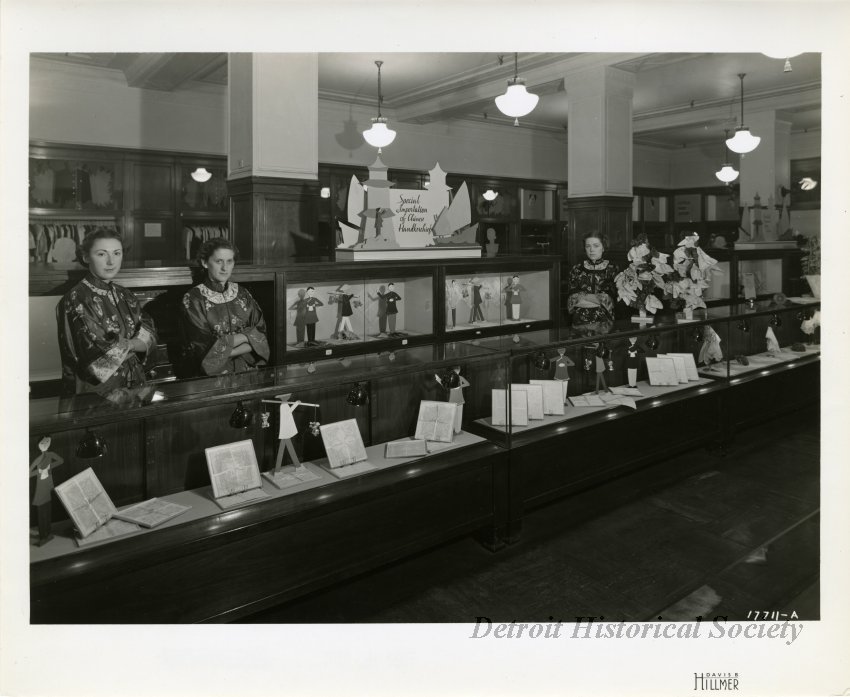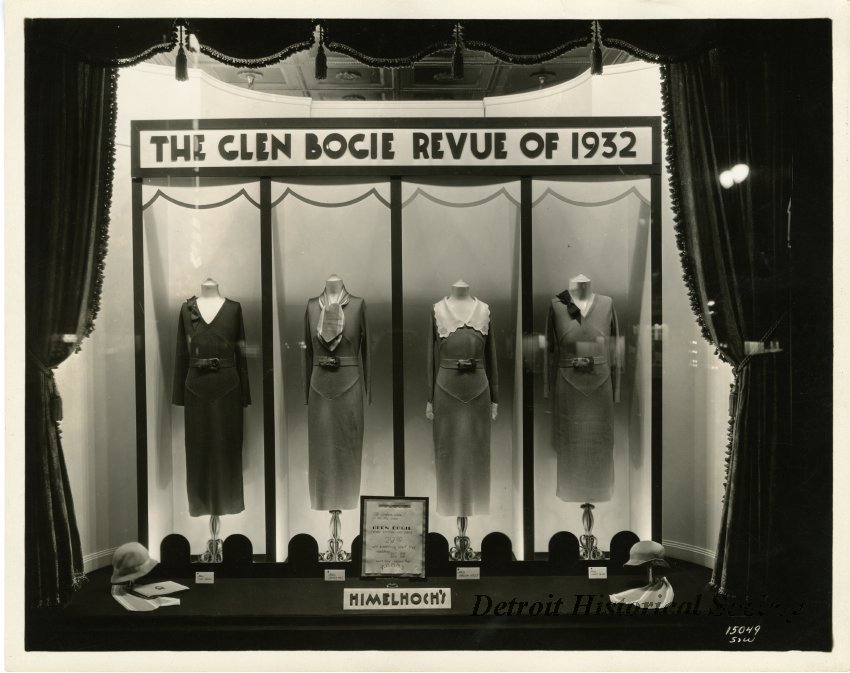Encyclopedia Of Detroit
Himelhoch's
Himelhoch’s was a women’s high-fashion department store originally located in the small town of Caro, Michigan. However, the store’s founder, Wolf Himelhoch, a Jewish immigrant from the Kurland Province in Latvia, decided to move the store to downtown Detroit in 1907. He recognized the demand for high-end women’s fashion in Detroit; the wives of automobile executives were shopping at high-end department stores like Russeks and Saks in New York and wanted to find a similar shopping experience locally. The new Himelhoch’s location was 1230 Woodward Avenue, next to Hudson’s Department Store and across the street from B. Siegel.
Business boomed as women flooded to the department store to shop for clothing, shoes, makeup, and more. Soon, Himelhoch’s outgrew of the two-story Woodward location. In 1923, they moved to the Washington Arcade Building at 1545 Woodward Avenue, an impressive seven-story building designed by the famed architect Albert Kahn. Some of its notable features included marble-faced walls on the third story, mahogany floors on the third and fifth levels, two passenger elevators, and an electric freight elevator. The building is often recognized by its Washington Boulevard entrance.
Despite its initial success, the growth of the suburbs and the flight from Detroit after the 1967 Civil Disturbance eventually led Himelhoch’s to go out of business. As the suburbs grew, people were shopping there more often and business at the Woodward Avenue location fell. In order to adapt, Himelhoch’s opened locations in Birmingham (1950), Grosse Pointe (1952), and Northland (1954). However, as a result of the store’s growth into the suburbs, they couldn’t keep an inventory of luxurious goods or take chances on new trends; they had to buy merchandise they knew would sell. Even with their best efforts, the chain was losing momentum. Slowly, each of the specialty departments closed: the bridal department, shoe department, children’s department, furs, and cosmetics. In 1979, Himelhoch's filed for Chapter 11 bankruptcy and closed their stores. However, in 2018 the brand was revived by fourth-generation family members as an online retailer.
Even after the business’ closing, the Himelhoch building continues to be important to Detroit. It is listed on the National Register of Historical Places. In 2017, the Detroit-based American Community Developers, Inc. bought the building and converted it into apartment units.



